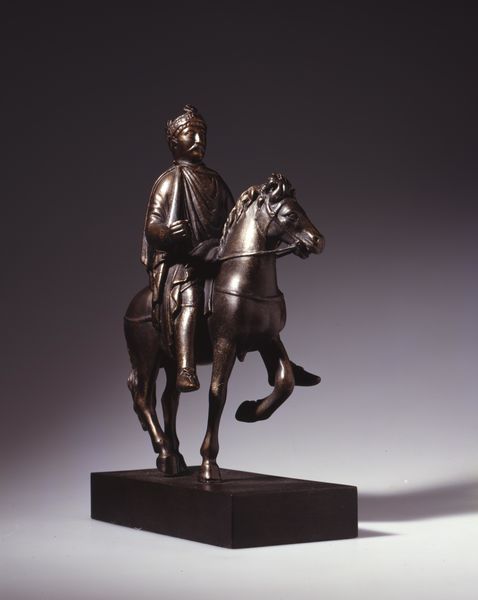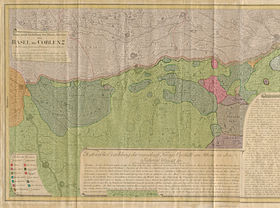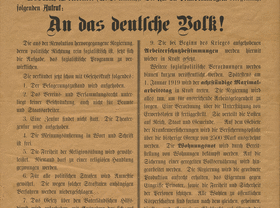
The Oaths of Strasbourg
The Oaths of Strasbourg are the first documents written in Old French and one of the first ever documents written in German. They stand as one of the very first bi-lingual treaties.
They are bequeathed in a 10th Century transcription of the contemporary chronicles of Nithard concerning the sons of Ludwig the Pious.The transcription is today preserved in the National Library of France. For the first time, a treaty of huge importance was not written in Latin, but rather in the national language. The oaths bear witness to the linguistic divide between the Kingdom of the East Franks and the Kingdom of the West Franks. They consist of a vow made by the brothers, reinforced by a vow by their followers. In their mother tongue, they swore to disobedience, should their leaders ever break their vow.
The Old German-language oath of King Karl, ruler of the Kingdom of the West Franks, the future Kingdom of France :
In Godes minna ind in thes Christanes folches/ ind unser bedhero gealtnissi, fon these/ mo dage frammordes, so fram so mir Got/ genuuizci indi mahd furgibit so haldi t/es/an minan bruodher, soso man mit rehtu/ sinan bru(od)her scal, in thiu, thaz er mig soso/ma duo, indi mit Lu(d)heren in noh heiniu t/hing ne gegango the minan uuilllon imo ce scadhen uuer(d)hen.
The Old French-language oath of King Ludwig, ruler of the Kingdom of the East Franks, the future Holy Roman Empire:
Pro deo amur et pro Christian poblo et nostro commun/saluament d’ist di in auant. In quant deus/sauir et podir me dunat si/ saluarai eo cist meon fradre Karlo. Et in aiudha/ et in cadhuna cosa. Si cum om per dreit son/ fradra saluar dist, in o quid il mi altre/si fazet ; et ab Ludher nul plaid numquam/ prindrai, qui meon uol cist meon fradre Karlo in damno sit. Quodcum Lodhuuicus/ explesset. Karolus teudisca lingua sic hec eadem uerba testatus est.
English translation of the oath :
For the love of God and the christian people and our joint salvation, from this day forward, so long God graces me ability and knowledge, I will stand by my brother, just as he stands by me, and I shall never make a covenant with Lothair that shall deliberately do harm to my brother.
The oath of Karl’s army in Old French :
Si lodhu uigs sagrament que son fradre Karlo iurat conseruat. Et Karlus meos sendra desuo part non los tanit si ioreturnar non lint pois. Neio neneuls cui eo returnar int pois in nulla aiudha contra lodhu uuig nun li iu er.
Translation of the oath of Karl’s army :
If Ludwig keeps the oath sworn to his brother Karl, and Karl, my lord, breaks his, and if I cannot dissuade him from it, neither I nor anyone else, then I shall not assist him against Ludwig.
The oath of Ludwig’s army in Old high German :
Oba karl then eid then er sinemo bruodher ludhuuuige gesuor geleistit indi ludhuuuig min herro then er imo gesuor forbrihchit ob ih inan es iruuenden ne mag noh ih noh thero nohhein then ih es iruuenden mag uuidhar karle imo ce follusti ne uuirdhit.
Translationof the oath of Ludwig’s army:
If Karl keeps the oath sworn to his brother Ludwig, and Ludwig, my lord, breaks his, and if I cannot dissuade him from it, neither I nor anyone else, then I shall not assist him against Karl.





